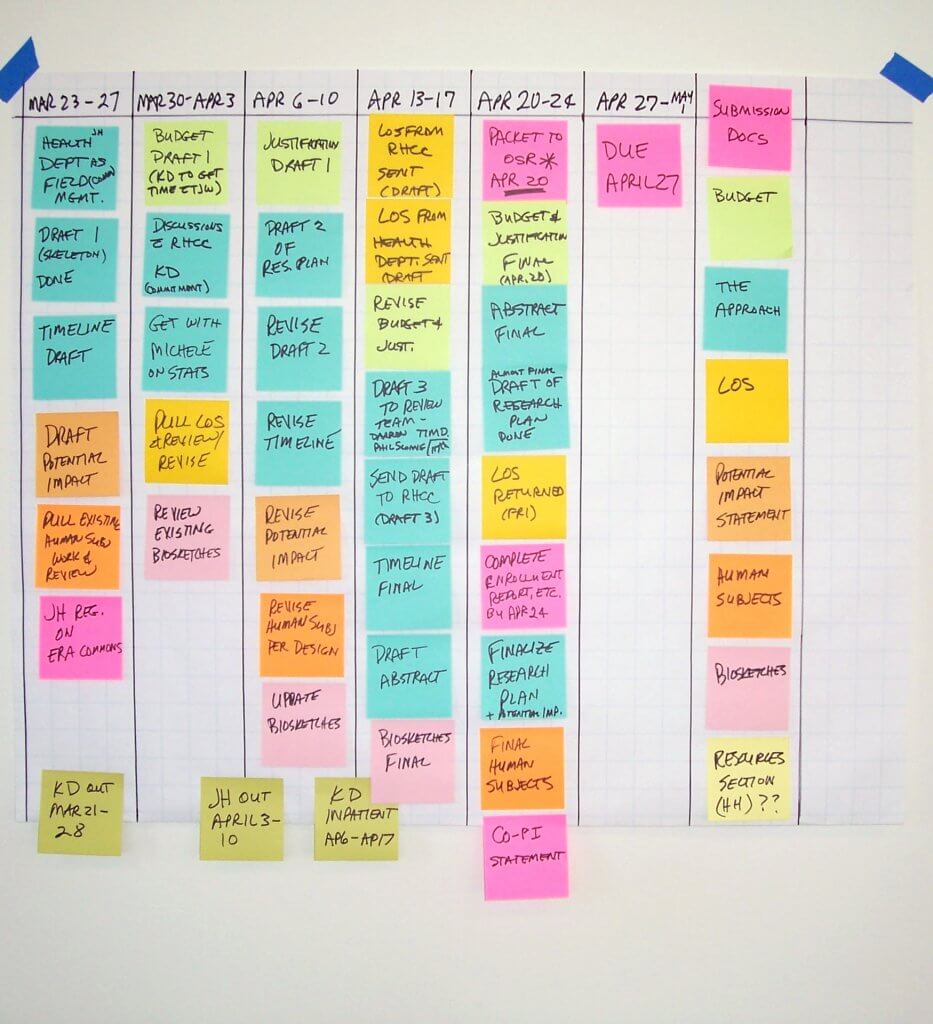
When submitting a grant, sixteen weeks out is the magic number for starting the process. (For the NIH deadlines, this means start working at the deadline before your target: For the June deadline, early February is the optimal time to begin, and so on.) Understanding the path and having a clear timeline is key to a successful grant submission that doesn’t leave you wrung out.
Dr. Carol Lorenz, aka Durango Kid, provides everything you need to pace your winter grant to successful submission. With a history of managing more than 70 grant submissions in a year, Dr. Lorenz is a PhD scientist with guaranteed reality-based expertise in project management. Over the course of seven blog entries, she breaks down the huge endeavor of a grant submission into manageable chunks, and shows you how to create a customized grant timeline to ensure the smooth completion of your application.
Part 1: #*@*! Plan is Not a Four-Letter Word
Why should you do this? How can it help you? Assignment: Decide on which grant you want to apply for.
Part 2: Planning to Plan: Gathering Materials
How should you start your plan? Assignment: Assemble supplies for creating a paper timeline.
Part 3: Can You (Really) Do Your Proposed Study?
How to assess feasibility so you don’t bite off more than you can chew (or put into one application). Assignment: Create a project proposal.
Part 4: Researchers: Start Your Timelines
How much time do you really have, and how can you best break it down? Assignment: Add submission date and units of time to your timeline. For February 2022, we suggest these dates.
Part 5: 500 Mile(stones)
Milestones can tell you if you’re progressing at the right pace toward your submission due date. Assignment: Note important dates and transfer them to your timeline.
Part 6: Buckets of Fun (Work?)
How to break your work into packages so you can then define specific tasks. Assignment: Create your buckets.
Part 7: What’s In Your Bucket(s)?
Now that you have your buckets, what do you put in them? Assignment: Brainstorm tasks and fill your buckets, then your timeline.

